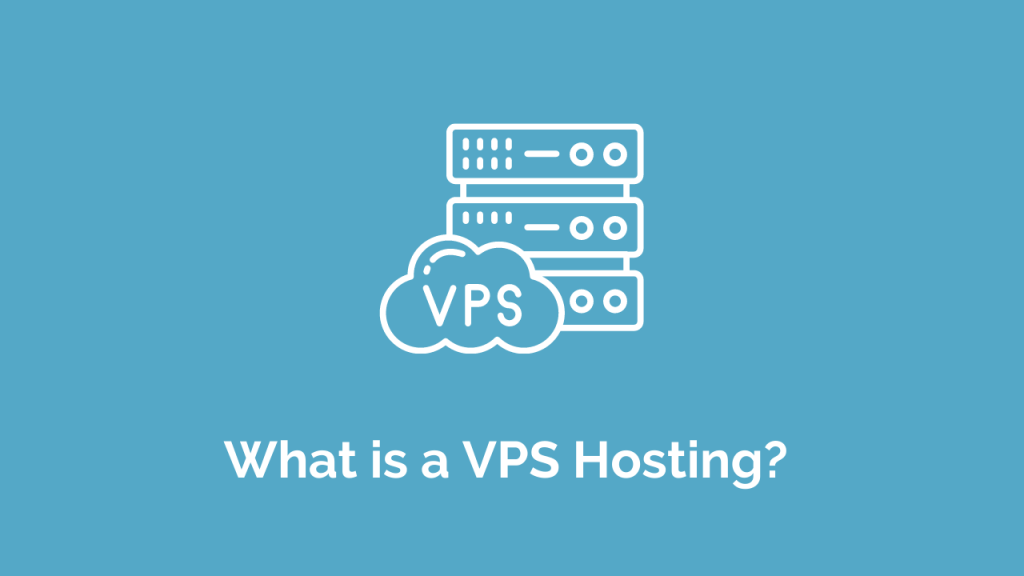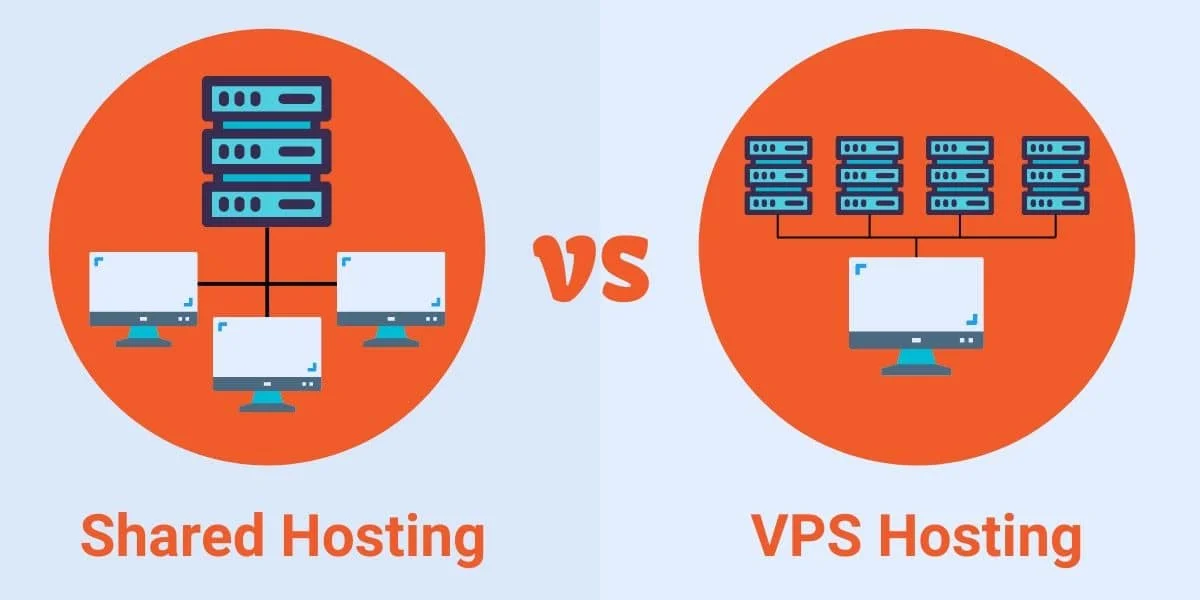Table of Contents
What Is Shared Hosting?

Shared Hosting is a type of hosting where your account ‘shares’ resources with other hosting accounts on the server.
This is generally the cheapest way for non-technical users to host websites. It typically offers easy-to-use control panels and website setup tools, along with generous limits such as unlimited sites, visitors and storage.
On the other hand, your site will often load more slowly than with other hosting types (especially in high-traffic situations) and you don’t have as much control over your infrastructure.
Other accounts on your server can also affect your sites because you have to share resources with them.
Why Choose Shared Hosting
- You’re building a blog or personal site
- Want to make a small to average-sized company website
- Have a small budget
- Don’t know much about web development
The pros of shared hosting
- It’s affordable: Shared hosting is a much more cost-effective option when compared to dedicated or VPS hosting, especially if you’re on a tight budget.
- It’s beginner-friendly: It doesn’t require a lot of complex configurations or advanced technical knowledge, making it a perfect option for people who are first-time website owners.
- It requires almost no maintenance: The hosting provider handles pretty much all of the management and maintenance related to its hosting plans’ servers. This means you can focus less on server updates or security patches and more on running your website.
The cons of shared hosting
- It isn’t optimized for performance: It customers have limited access to server resources as these are distributed among all the websites on the server. This could negatively impact your website’s performance, especially when there’s a traffic surge.
- It’s more susceptible to security threats: Shared hosting plans carry an increased risk of malware attacks spreading from one compromised website to another. Following website security best practices is the easiest way for you to mitigate these risks.
- It lacks customizability: You don’t have root access to your shared hosting server, which means you are restricted from performing administrative tasks like installing software or performing server updates yourself.
What is VPS hosting?

VPS hosting, an abbreviation for Virtual Private Server Hosting, is a pivotal solution within the web hosting landscape. VPS hosting is a type of hosting service that uses a virtual machine to share resources on a single physical server itself.
It’s best for websites whose traffic exceeds the limits but doesn’t need the resources of a dedicated server. This server, often referred to as a host machine or node, allows for the creation of multiple virtual private servers (VPS) within it. Each VPS operates as an independent entity, with its dedicated resources, including CPU, RAM, storage, and operating system.
Why Choose VPS Hosting
- You’re running a business and plan to expand it in the future
- Have a larger budget and want to invest in your site
- Expect high-traffic for your website in the future
The pros of VPS Hosting
- It offers more control: VPS hosting puts your hands on the server’s steering wheel, offering you a greater level of control over the infrastructure that powers your website. This includes having root access to the server, installing your own software and programs and adding user accounts.
- It’s cost-effective: Unlike dedicated hosting plans, which can easily cost over $100/month, VPS hosting plans are still affordable for many individuals and small businesses. And considering that VPS hosting shares many of the same features as dedicated hosting, it’s easy to see why it’s such a popular and budget-friendly alternative.
- It offers better performance: VPS hosting comes equipped with higher-end server hardware, providing a faster and more efficient distribution of resources for your web projects. In addition, these resources are fully dedicated to your website, allowing you to partition them as you require.
The cons of VPS Hosting
- It requires technical knowledge: To take full advantage of VPS hosting plans, you’ll want to have some prior web hosting experience. This can raise the cost of your hosting package if you have to hire people with the necessary skillset or training to manage the virtual machine.
- It requires more maintenance: Unlike a hosting plan’s maintenance, which is taken care of by the hosting provider, you will be responsible for keeping your VPS running smoothly.
- If something goes wrong, it will primarily be up to you to discover and fix the issue.
Key Differences and Benefits Between VPS and Shared Hosting

Shared Hosting:
- Resource Sharing:
- Distributed Resources: In shared hosting, multiple websites share the same server and its resources, such as CPU, RAM, and disk space.
- Limited Resources: Resources are shared equally among all the websites hosted on the server, which can lead to performance issues if one site uses too many resources.
- Cost-Effective:
- It is generally more affordable because the cost is distributed among multiple users.
- Ease of Use:
- Shared hosting is usually more user-friendly, with simplified management interfaces suitable for beginners.
- Limited Control:
- Users have limited control over server configurations and are confined to the settings provided by the hosting provider.
- Ideal for Small Websites:
- Shared hosting is suitable for small websites with moderate traffic and resource requirements.
VPS Hosting:
- Dedicated Resources:
- Isolated Environment: Each VPS operates in an isolated virtual environment with dedicated resources, including CPU, RAM, and disk space.
- Customizable Resources: Users can often customize resource allocations based on their specific needs.
- Performance:
- VPS hosting generally provides better performance compared to shared hosting, as resources are not shared among as many users.
- Scalability:
- VPS hosting allows for more scalability, as users can easily upgrade their plans to accommodate increased traffic and resource demands.
- Control and Customization:
- Users have more control over server configurations, allowing them to install custom software and configure settings according to their requirements.
- Better Security:
- VPS hosting is considered more secure than shared hosting because each virtual server operates independently, reducing the risk of security breaches from other users on the same server.
- Suitable for Growing Websites:
- VPS hosting is a good choice for websites that have outgrown hosting but may not require the resources of a dedicated server.
When Deciding Between Shared Hosting and VPS hosting, there are several factors to consider:
Cost: Shared hosting is the most affordable option, making it an attractive choice for small businesses or individuals with limited budgets. VPS hosting is more expensive, but it offers better performance and more control over the server.
Performance: Shared hosting can be slower and less reliable than VPS hosting because multiple websites share the same resources. VPS hosting provides dedicated resources to each website, making it faster and more reliable.
Security: Shared hosting is less secure than VPS hosting because multiple websites share the same server, which means that if one website is compromised, it can affect others. VPS hosting provides greater security by isolating each website on its own virtual server.
Control and Flexibility: VPS hosting provides more control and flexibility than shared hosting because users have root access to their virtual servers. This allows them to install custom software, configure their server settings, and manage their resources as needed. Shared hosting, on the other hand, provides limited control and flexibility.



